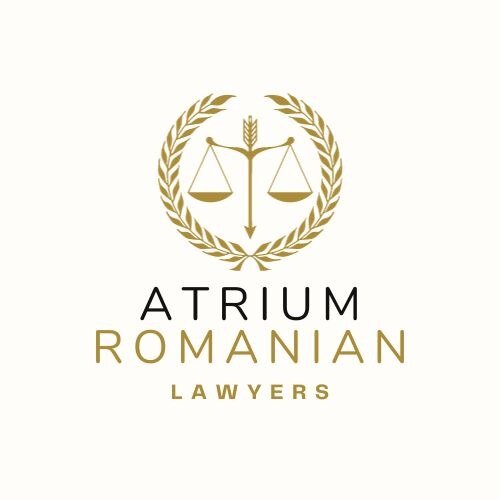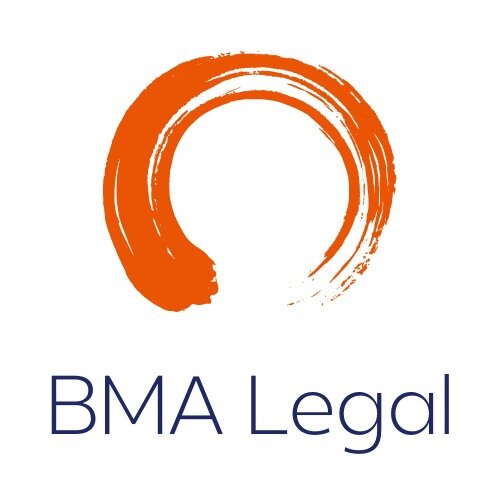Best Venture Capital Lawyers in Romania
Share your needs with us, get contacted by law firms.
Free. Takes 2 min.
Or refine your search by selecting a city:
List of the best lawyers in Romania
About Venture Capital Law in Romania
Venture Capital (VC) is a crucial component of the entrepreneurial ecosystem in Romania, helping to fuel innovation and growth in various sectors. The Romanian VC landscape has been expanding over the past decade, supported by a combination of local and international investors eager to capitalize on the country's burgeoning tech scene and dynamic startup culture. Romanian law offers a robust framework for venture capital activities, focusing on fostering an environment conducive to investments and safeguarding the interests of both investors and startups. Key industries benefiting from VC in Romania include technology, healthcare, fintech, and renewable energy.
Why You May Need a Lawyer
Engaging a lawyer who specializes in Venture Capital can be crucial for navigating the complex legal landscape associated with investment transactions. Common situations where legal advice may be necessary include:
- Structuring investment deals and drafting investment agreements to ensure they align with both parties' interests.
- Conducting due diligence on investment targets to uncover any potential legal risks or liabilities.
- Negotiating and determining the valuation and terms of the investment to avoid future conflicts.
- Complying with local regulations and tax obligations to prevent legal infractions.
- Mediating and resolving disputes between investors and startup founders.
Local Laws Overview
Venture Capital in Romania is governed by a combination of national legislation and European Union directives. Key aspects of the local laws that are relevant to VC include:
- Company Law: The Romanian Company Law provides the framework for establishing and operating businesses, which is essential for setting up startups and structuring VC deals.
- Investment Regulations: Regulations on financial markets include specific rules for venture capital funds regarding fundraising, operation, and transparency.
- Intellectual Property Protection: Startups often need to protect their innovations, making it crucial to navigate the intellectual property laws in Romania effectively.
- Tax Considerations: Preferential tax treatments and incentives are available for certain VC investments, making tax planning a significant component of any investment strategy.
- Employment Law: Ensuring startups comply with local employment and labor laws is important as they scale and expand their teams.
Frequently Asked Questions
What is the typical process for setting up a venture capital fund in Romania?
The process involves registering the fund with the relevant authorities, providing all necessary documentation, and ensuring compliance with local and EU regulations governing financial markets.
How do startup valuations work in Romania?
Valuations in Romania are typically conducted through financial metrics comparable to European standards, including assessments of revenue potential, market position, and growth trajectories.
What legal structures are commonly used for venture capital investments?
Common structures include limited partnerships (LPs) and joint-stock companies, reflecting both Romanian and international best practices.
Are there any government incentives for venture capital investments?
Yes, the Romanian government offers various tax incentives and grants for investors to encourage funding of innovative sectors and startups.
What role do legal agreements play in VC transactions?
Legal agreements are vital for outlining the terms of the investment, protecting the rights of investors, and ensuring startups have the necessary governance frameworks.
How are disputes between investors and startups typically resolved?
Disputes can be resolved through negotiation, mediation, or other forms of alternative dispute resolution, with litigation as a last resort due to its time and cost implications.
What are the regulatory compliance requirements for VC investments?
Compliance involves adhering to financial disclosure requirements, anti-money laundering laws, and industry-specific regulations, as applicable.
What is the role of corporate governance in VC investments?
Good corporate governance ensures accountability, transparency, and sound decision-making practices within startups, which is attractive to potential investors.
How important is due diligence in the VC investment process?
Due diligence is critical to identify any legal, financial, or operational risks early in the process, helping investors make informed decisions.
Can foreign investors easily enter the Romanian VC market?
Yes, Romania welcomes foreign investment; however, investors must comply with specific regulations related to foreign entities and potential restrictions in strategic industries.
Additional Resources
For those seeking further information on VC in Romania, the following resources may be helpful:
- Romanian Private Equity Association (ROPEA): Provides industry insights, networking opportunities, and support for VC professionals.
- Ministry of Economy, Entrepreneurship and Tourism: Offers resources and guidance on investment opportunities and regulatory requirements.
- National Office for the Prevention and Combat of Money Laundering (ONPCSB): Provides regulations regarding compliance with financial legislation.
Next Steps
If you require legal assistance in the field of Venture Capital in Romania, you should consider reaching out to a law firm with expertise in this area. Begin by gathering recommendations from within the industry or by consulting professional directories. Be prepared to discuss your specific needs and ensure the law firm has experience dealing with international transactions, local compliance issues, and venture capital deals. A well-informed lawyer can guide you through the technicalities and help protect your investment interests.
Lawzana helps you find the best lawyers and law firms in Romania through a curated and pre-screened list of qualified legal professionals. Our platform offers rankings and detailed profiles of attorneys and law firms, allowing you to compare based on practice areas, including Venture Capital, experience, and client feedback.
Each profile includes a description of the firm's areas of practice, client reviews, team members and partners, year of establishment, spoken languages, office locations, contact information, social media presence, and any published articles or resources. Most firms on our platform speak English and are experienced in both local and international legal matters.
Get a quote from top-rated law firms in Romania — quickly, securely, and without unnecessary hassle.
Disclaimer:
The information provided on this page is for general informational purposes only and does not constitute legal advice. While we strive to ensure the accuracy and relevance of the content, legal information may change over time, and interpretations of the law can vary. You should always consult with a qualified legal professional for advice specific to your situation.
We disclaim all liability for actions taken or not taken based on the content of this page. If you believe any information is incorrect or outdated, please contact us, and we will review and update it where appropriate.
Browse venture capital law firms by city in Romania
Refine your search by selecting a city.












